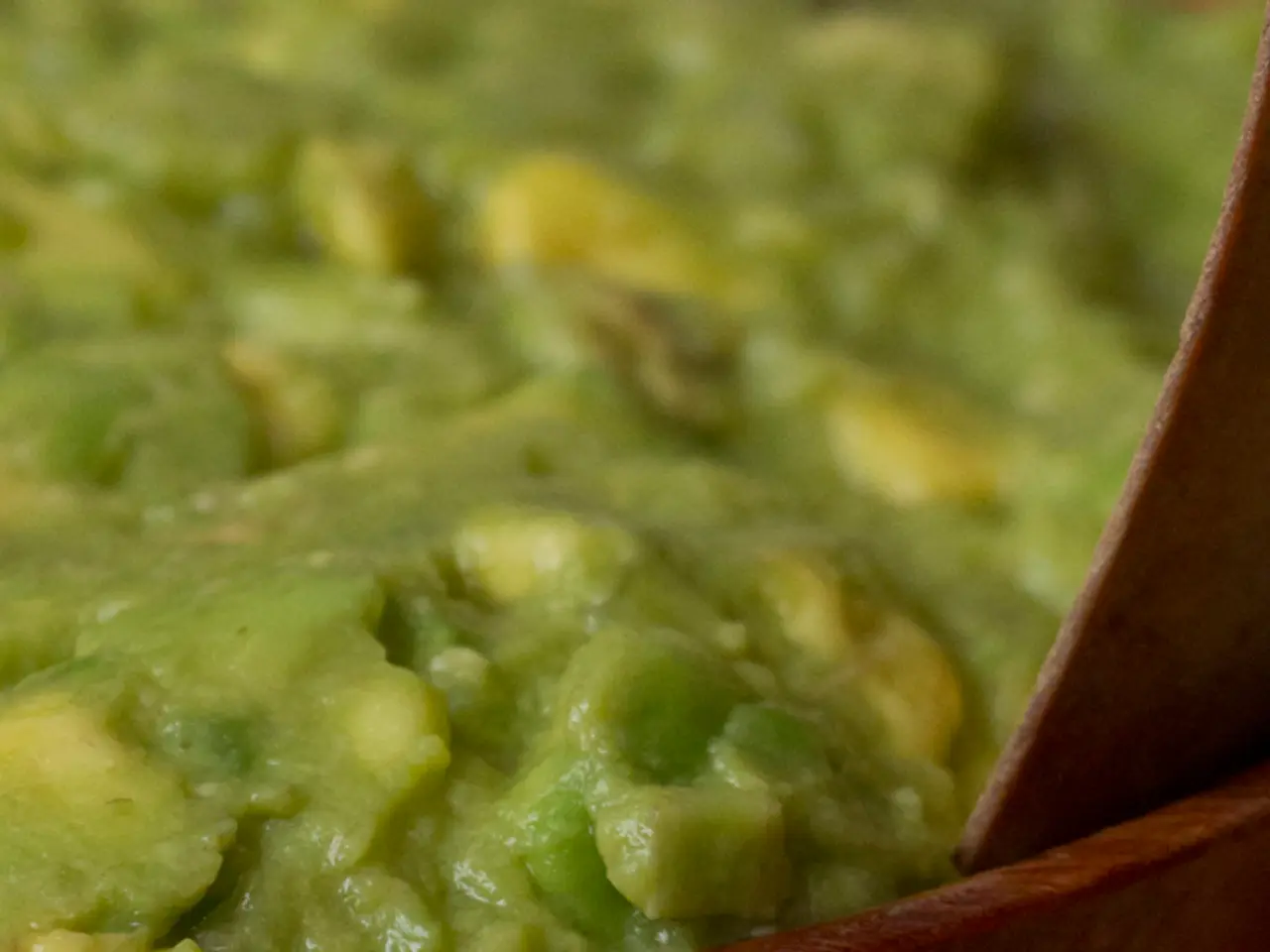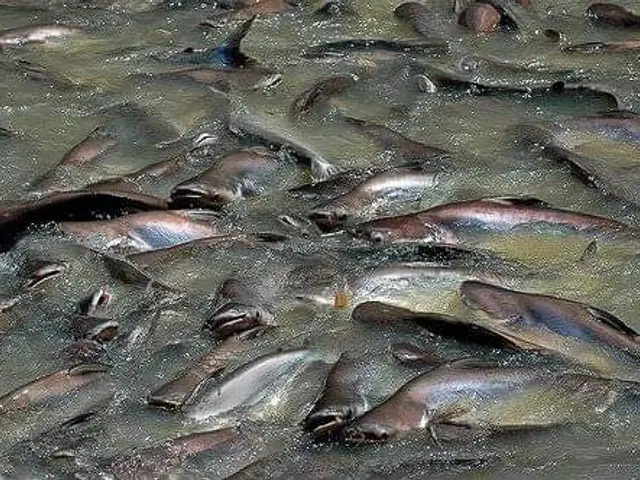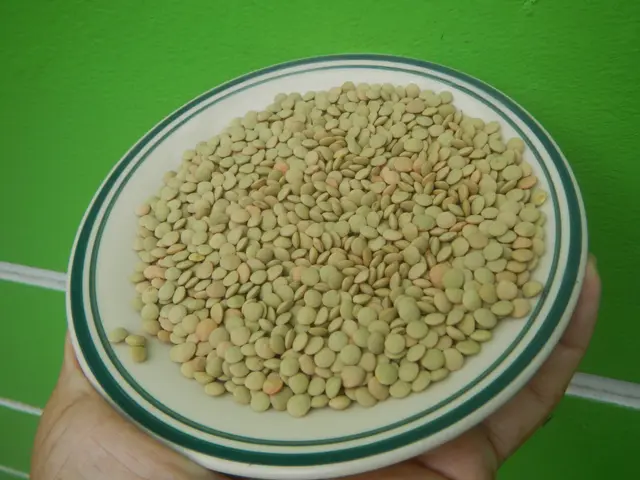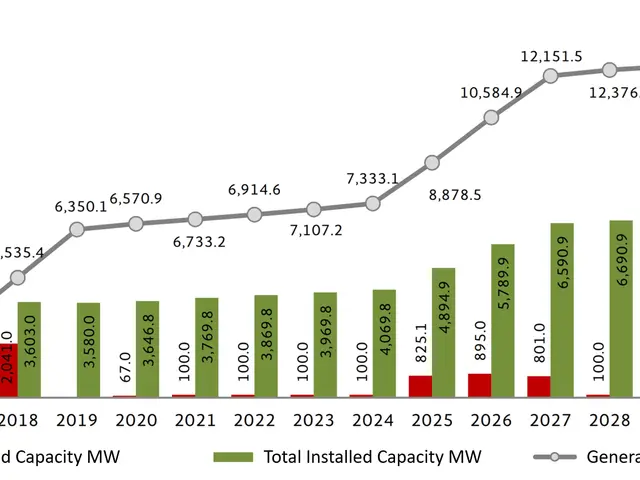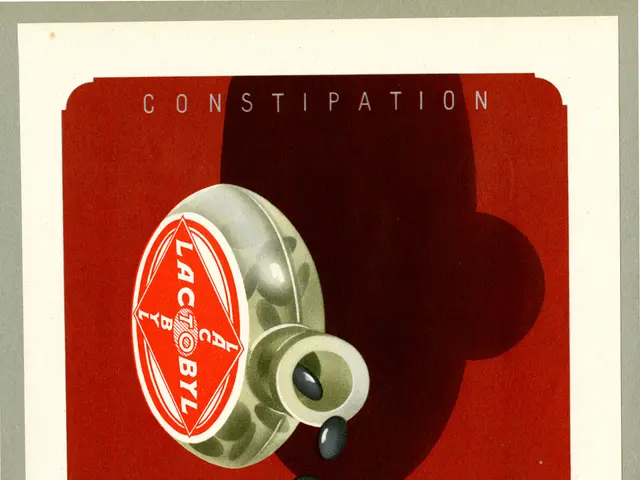Resourceful Mothers in Gaza Make Do With Limited Supplies, Asserting Persistent Hunger Remains
In the war-torn territory of Gaza, a humanitarian crisis is unfolding as food shortages intensify and the risk of famine looms large. The blockade imposed by Israel in early March has led to a severe scarcity of essential goods, including vegetables and meat, which have all but vanished from the markets.
Mothers like Rehab Al-Kharoubi, a mother of eight, are forced to beg for raw white beans to feed her family. Amani Al-Nabahin, another mother in Gaza, manages to get mujaddara - a traditional dish made from lentils, rice, and vegetables - from charity kitchens, but the dish is now stripped to its bare essentials, consisting only of rice and lentils.
The struggle faced by families like the Muzheds is being repeated across Gaza as the territory plunges deeper into what international experts have called "the worst-case scenario of famine." Families are rationing food, with some serving only one meal a day. Some people don't even have enough to improvise their meals, and Kifah Qadih, a displaced person from Khuza'a, couldn't get any food and her bowl has remained empty all day.
Alia Hanani, a 78-year-old mother, is rationing bread and using a wartime dukkah made of flour, lentils, and bulgur to make ends meet. The war has led to a lack of resources for farming and fishing in Gaza, and the little food that enters is often looted, hoarded, and resold at high prices.
The food situation in Gaza is dire, with more than one in three people (39%) going days without eating and nearly a quarter of the population enduring famine-like conditions. Acute malnutrition has surged, especially among children under five, with rates quadrupling in Gaza City to 16.5%. Widespread starvation and hunger-related deaths are rising, and UN agencies report that about 70% of Gaza's infrastructure has been destroyed, further complicating aid efforts.
Improvisation among civilians and aid workers is occurring amid extreme scarcity. UN officials describe situations where aid workers, doctors, and journalists are fainting from hunger and exhaustion due to limited food access. Local reports indicate hundreds of deaths linked directly to malnutrition and desperate attempts to obtain food at distribution points.
Despite UN agencies having sufficient food stocks positioned outside Gaza to feed the entire population for two months, the continuation of conflict and restrictions prevent effective aid delivery, exacerbating the famine-like conditions. The overall situation is described as an unfolding disaster requiring urgent full-scale humanitarian response to avoid further loss of life.
Gas for cooking is scarce in Gaza, and families are surviving on meager meals such as Sally Muzhed's family, who are surviving on a single bowl of stewed eggplant and watery tomato juice, which they call moussaka. Nearly nine out of ten households in Gaza are resorting to extremely severe coping mechanisms to feed themselves, with some surviving on stale pita, cold cans of beans, and meals from charity kitchens.
Humanitarian organizations say the aid that enters Gaza remains far from adequate, and the blockade and conflict have led to a humanitarian crisis unprecedented in recent history, with thousands of children admitted monthly for treatment of malnutrition and mortality rising sharply. The situation in Gaza requires urgent attention and action to prevent further suffering and loss of life.
- Amidst the political turmoil and war-torn landscape of Gaza, the middle ground of discussions revolves around the grim reality of health-and-wellness, food-and-drink, and nutrition.
- The scarcity of essential goods, including fruits, vegetables, and meat, has raised concerns about the growing middle news of a humanitarian crisis in the region.
- Artistic expression appears to have taken a back seat in Gaza, as the pursuit of food-and-drink and health-and-wellness dominates the thoughts and actions of its inhabitants.
- In the midst of political tension and war-and-conflicts, the priority for many in Gaza has shifted to the basics of food-and-drink, health-and-wellness, and fitness-and-exercise.
- The dire situation in Gaza highlights the need for a focus on lifestyle changes that prioritize food-and-drink choices, nutrition, and health-and-wellness to combat the current crisis.
- The crisis in Gaza underscores the importance of understanding the relationship between war-and-conflicts, politics, and the devastating impact on the basic necessities of life, such as food-and-drink, nutrition, and health-and-wellness.
